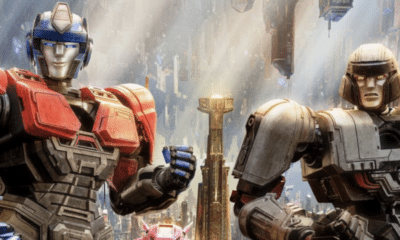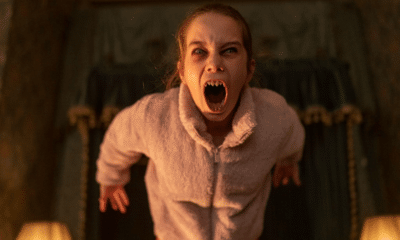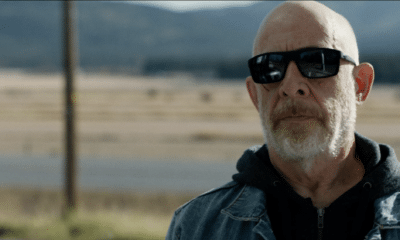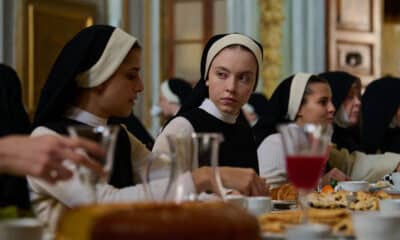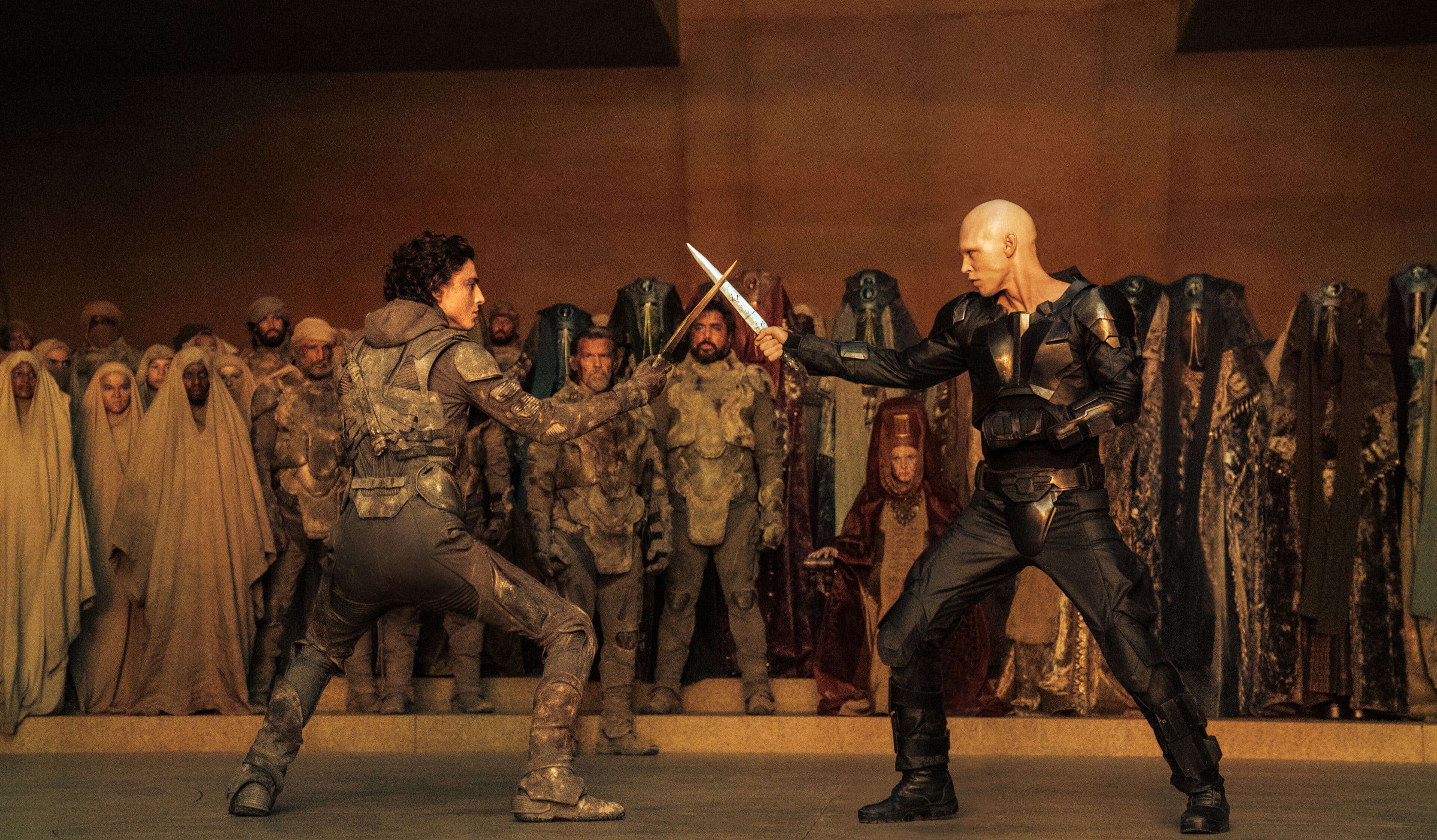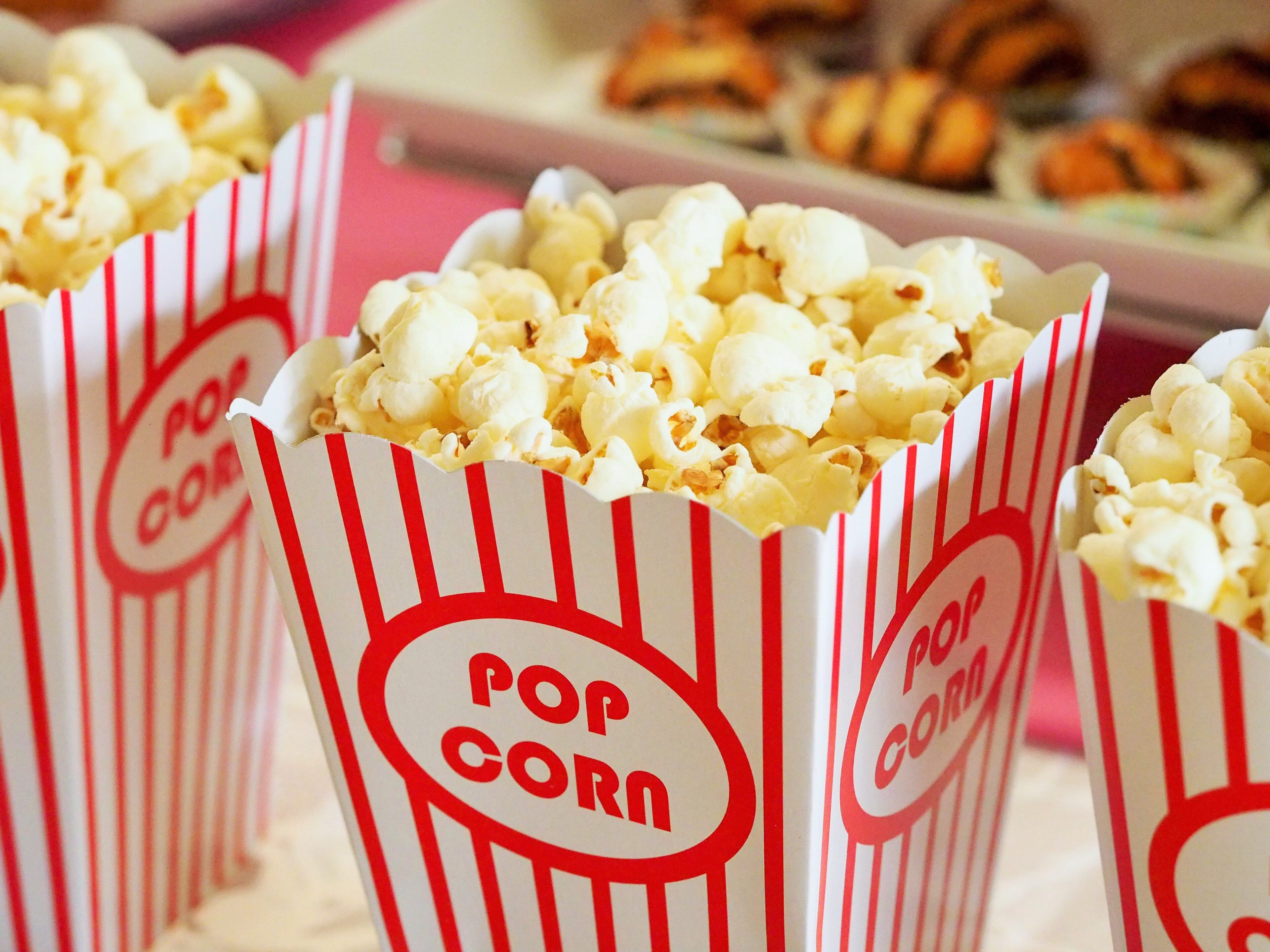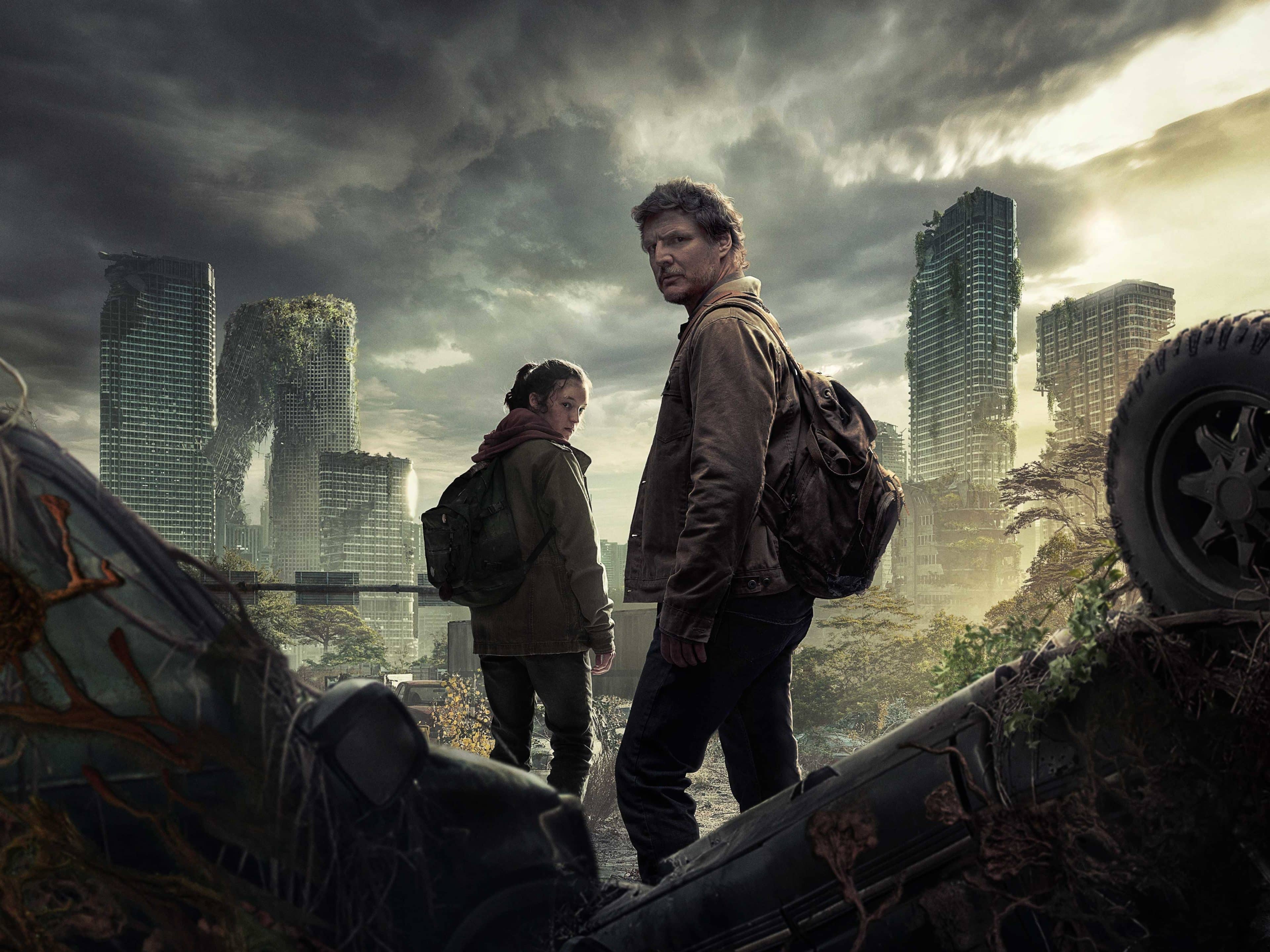Last week I had the pleasure of interviewing the wonderful Edgar Wright (which was possibly the best Birthday present ever) .Wright not only happens to be not my favourite directors but also the man behind Shaun of the Dead, Hot Fuzz, Scott Pilgrim vs the World and The World’s End. To promote the DVD and Blu-ray home entertainment release of The World’s End, Wright has been chatting about the film and the process of getting it to the big screen.
As you know The World’s End is the closing film in a trilogy known as the ‘three flavours cornetto trilogy‘ that began in 2003 with the acclaimed Shaun of the Dead and continued in 2007 with Hot Fuzz. Wright has also revealed a few details about those films and how the superb trio of comedies came to be, which would be exciting enough even if the excellent director was not brimming with charisma, charm and of course the great sense of humour you would expect. You can read the insightful interview below, be prepared for hilarious anecdotes:
You’ve just spent the weekend in London attending The World’s End screenings and taking part in Q&A’s with Simon Pegg. How did they go?
It was good! It was really fun. We did a triple bill one yesterday and we did one with just The World’s End on Saturday. It was really cool, it was good.
You’re doing another Q&A in Letchworth where you filmed The World’s End..
We promised we’d do one and we’ll finally go back and make good on our promise.
How was it filming around there?
It was cool. We amalgamated Welwyn Garden City and Letchworth into one town. They were literally the first places that I saw on our location scout in maybe February 2012. I always liked the architecture but initially we sort of discounted it because there weren’t enough pubs [laughs] and then eventually we started to look at other towns that just felt too similar to Wells in Hot Fuzz. Letchworth and Welwyn Garden City, because of their architecture, just kept standing out as being a bit more unique and then we just thought, “Well, we’ll just have to make pubs.”
One’s a carvery isn’t it?
One’s the train station, one is the cinema, one was a pet shop. I think maybe three of them were real in Letchworth at least. The World’s End is a carvery, The Gardeners’s Arms, it’s a pub/carvery. But the best one is the train station. Number 11, The Hole in the Wall is Letchworth train station.
Was it always the plan to make Shaun of The Dead, Hot Fuzz and The World’s End a semi trilogy?
When we made Shaun of The Dead 10 years ago we had no plans beyond that at all. We hadn’t written anything else. We felt lucky enough to just make a movie. We’d come from a TV background and so we hoped it would do well but we had no idea how it was going to do, whether it was going to get released anywhere other than the UK. So Hot Fuzz only came up as the next idea after Shaun of The Dead and then whilst we were promoting Hot Fuzz me and Simon started hatching the plot for this.
Where did the project start for you and who had the initial idea for the script?
It sort of came from a couple of things. I had written a script when I was 21 that I never made that was about teenagers on a pub crawl and is very similar to the first five minutes of the movie where you see the 1990 prologue. I never did anything with it but then when we were doing the Hot Fuzz press tour I started thinking about it and I started to think maybe there’s something more interesting in adults trying to recreate a teenage night out. I had in fact tried to do that with Simon and Nick [Frost] once and it was pathetic [laughs]. It was in my hometown. We did a road-trip and we ended up staying in my hometown and I tried to get them to do this pub crawl with me and it was just like absolutely pathetic. So I thought there was something in that and I remember telling Simon about it. And because I had been back to my hometown for Hot Fuzz I’d had that experience very vividly of being back in my hometown and it’s always bittersweet where it’s changing without you there. So then the whole idea of it being an invasion film where there’s a reason that home town has changed. We had that idea in 2007 and the nice thing was because it had always been simmering. The great thing about writing these films is that they’re all genre films but we can put so much personal stuff into it which is kind of unusual in a way. It’s the nice way to write genre films, that you manage to pack it full of things that have actually happened to you within a zombie film, a cop film and a sci-fi film.
There’s so much music in the film. Can you tell us a little bit about putting the soundtrack together and how much you thought about music when writing the script?
We made this playlist of songs; 1988-1993 which is when I was at school and Simon was at college and so that just soundtracked the whole thing. Pretty much all of the songs that are in the soundtrack were on that playlist. A lot of the ones that were our favourites become structurally important to the film like Primal Scream’s “Loaded” and “I’m Free” by the Soup Dragons and “Step On” by the Happy Mondays. So then it was the idea of not just clearing them but referring to them. We liked the idea that Simon’s character has got such a goldfish memory that he repeats the lyrics like he’s thought of them himself. When he repeats the lyrics to the Soup Dragons or “Loaded” I think he thinks that he came up with those lines, he’s sort of forgotten that they’re lines from a song. It was great we sort of cleared a bunch of them that we were going to refer to on the set and then other ones that we only cleared later. But even things like Sisters of Mercy were one of Simon’s favourite bands. Still is. He still likes them. When it was like, “What’s Gary’s look and what’s his favourite band?” it was like this is him [Simon] he is a fan of this band.
Are there any similarities between you and Simon’s character in The World’s End in terms of sentimentality for teenage youth?
Yeah I think I probably had it more than Simon does, I think Simon [Pegg] and Nick [Frost] are less nostalgic than I am so I think that element of being overly nostalgic is probably me. And it’s something that used to bug me in a way and I think that’s almost where the script comes from. Because I’m pretty happy in my life and career and so it would almost annoy me how much I would think about my school days and my teenage years and stuff. So I thought there was something there, nostalgia is kind of like an affliction in a way because it’s like “why think of the past while you’re in the present?” so that was what the movie became about, the dangers of nostalgia and the dangers of living in the past or at least trying to. It’s almost like a time travel movie if the time machine was beer [laughs] and Gary [Simon] is trying to regress his adult friends to being teenagers again by getting them drunk.
You work with alot of the same actors in your productions were they part of your gang in your teenage years?
I guess so I guess the characters are sort of an amalgamation of friends that both me and Simon [Pegg] had and in a way what you end up writing is that you can see yourself in different characters and there are different elements of people’s stories in all of the characters. Eddie Marsan [Peter] has his backstory with the bully and there are elements of that that both me and Simon [Pegg] have sort of incorporated from our own lives and also the thing about dating the best friends sister is something that I did [laughs]. So there’s many elements that congeal together to create these characters but there all things from either people you know or from yourself so I would say there are parts of me and Simon [Pegg] in all of the main characters.
You were saying that this trio of films became an unintentional trilogy that don’t actually relate to each other or contain the same characters, but by calling it a ‘trilogy’ does that mean that this is underlining things and finishing with this group of actors?
Well no we’d love to work together again and I think what we discovered just through our own obsessions and stuff is that they are kind of linked in a number of ways, and they’re not the same characters that run through but they’re all films about growing up. There all films about an individual vs a collective and there all films about characters that have a love/hate relationship with the area that they live. So we sort of see them like Trojan horses where we’ve dealt with lots of personal things in a comedy within another genre which was really great. I think if we did something else again which we would like to, it would have similarities in that respect where we could maybe write something in a different genre but deal with something else at the same time if that makes sense. But I think we wanted to make this feel like it was a closer in a way. I think the thing that we wanted to do that runs through all of the films is the idea of dealing with arrested development in that Shaun [Simon] is a character that wants to grow up but in Hot Fuzz it’s more about Nick Frost’s character helping Nicholas Angel [Simon] dumb down. In The Worlds End Gary King [Simon] actually wants to go back in time and escape the present so we deal with slightly different variations on the man-child and the obsession of that perpetual adolescence.
You have worked with Simon Pegg and Nick Frost extensively now how have you found that relationship has developed as director, actor and writers?
What’s great about it is that we all pretty much agree on the tone of things which is great if your co-writers, director and star agree. It saves alot of time because you have agreed on a tone in the script writing stage and then when you have rehearsed it with the actors everybody is on the page with what they’re doing. So on these films I don’t really have a lot of discussion on set with the actors about how something is going to be delivered and what the tone is because we’ve worked hard to get everybody on the same page. I think that just gets better because this was something where everybody came to film sort of knowing what it was and what we were gonna do.
What is the writing process like for you and Simon? Do you ever write separately?
No, I don’t think we have really done anything separately on all three films. The only fancy thing that we do now is to plug the laptop into the TV; prior to that, it was like battleships with two laptops opposite each other and one person is typing and the other person is pacing. On this one, we would write it in an office with a TV, the final draft would be on the screen all day, and we would take turns writing. On the Blu-Ray is an extra about our flipchart, where we would write the whole thing out; you write a treatment where you write the whole plot out. Then you would write the treatment over and over again until it starts to write itself. We never really start a screenplay without knowing where it is going to go. I think that if you have that, then you can keep on alluding to what is going to happen towards the end; all of the films have lots of clues to the ending all the way through the movie. The first five minutes of the film in the 1990 flashback pretty much tells you what is going to happen later on in the movie. The pub signs are all tarot cards and the names of the pubs all tell you what is going to happen in the scene.
The World’s End has more of a tonal shift away from Shaun of the Dead and Hot Fuzz. There are also less references to Shaun of the Dead then in Hot Fuzz, so how conscious a choice was that?
I think so. Hot Fuzz is a bit more reference heavy because it is about action cinema and one of the characters is a film fan. The World’s End is inspired by a certain type of science fiction that we grew up with as kids, but we wanted to make it stand on its own and it doesn’t specifically reference one movie. It is in a particular type of science fiction genre that is not just film but TV and literature and those paranoid and quiet invasion stories that I always liked when I was kid. What we wanted to make different in this one is that what the aliens are suggesting is actually beneficial to earth; they just want to make earth more efficient. It’s not like in War of the Worlds where they just want to blow the f**k out of everything, they just want to make it neater.
Do you think there is a lack of original sci-fi in film these days?
Not necessarily. I could have fewer remakes. I made this joke at Comic Con this year I said ‘we have to start making original movies so there is something to remake in twenty years time’. When I see remakes of films that I went to see I think ‘whatever’ (laughs). I can’t get that excited about the fourth reboot of a certain sci-fi franchise – not mentioning any names.
What have you made of the sci-fi films we have seen this year such as Gravity, Oblivion and Elysium?
We had Looper last year as well. The more original ones the better. Is Gravity science fiction? Or is it science fact? The more original films the better. I would much rather have an original film that is flawed than another remake.
So, a remake isn’t something that would appeal to you?
Remakes can be great. The remakes that I like really like usually use the story to say something different. There are great remakes such as The Fly, The Thing, Philip Kaufman’s The Invasion of the Body Snatchers, usually they take the original story and tweak it. More of the recent horror remakes and sci-fi remakes don’t do anything different, they are just remaking the original film but with better special effects. If they did something different with it that would be great, but most of them don’t. Some of my favourite films are remakes and so I am not against them, I just think it would be great if they had more ambitions remakes.
Thank you to Edgar Wright, The World’s End is out now on DVD and Blu-ray.

Latest Posts
-


Film News
/ 6 hours agoFirst ‘Transformers One’ teaser trailer debuts IN SPACE!
The animated feature film is heading to cinemas this September.
By Paul Heath -


Film Reviews
/ 6 hours ago‘Abigail’ review: Dirs. Matt Bettinelli-Olpin & Tyler Gillett (2024)
Matt Bettinelli-Olpin and Tyler Gillett direct this new horror/ heist hybrid.
By Awais Irfan -


Film Trailers
/ 7 hours agoNew trailer for J.K. Simmons-led ‘You Can’t Run Forever’
A trailer has dropped for You Can’t Run Forever, a new thriller led by...
By Paul Heath -


Film Trailers
/ 12 hours agoNew trailer for Shudder’s ‘Nightwatch: Demons Are Forever’
Coming to Shudder this May.
By Paul Heath

